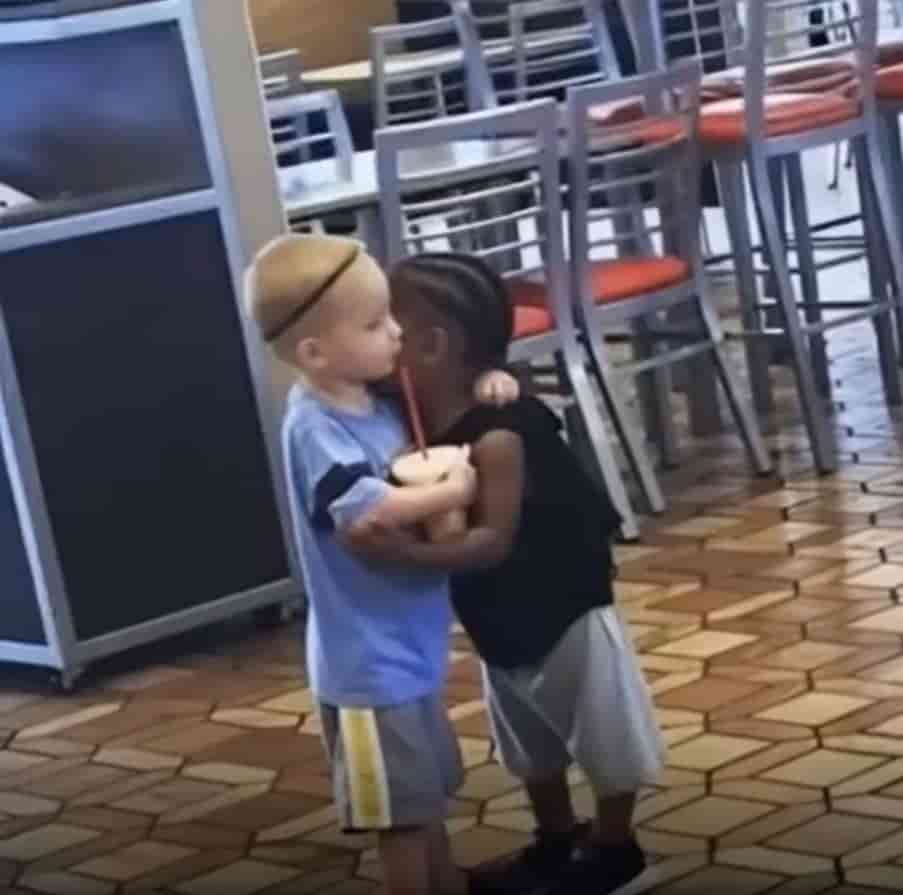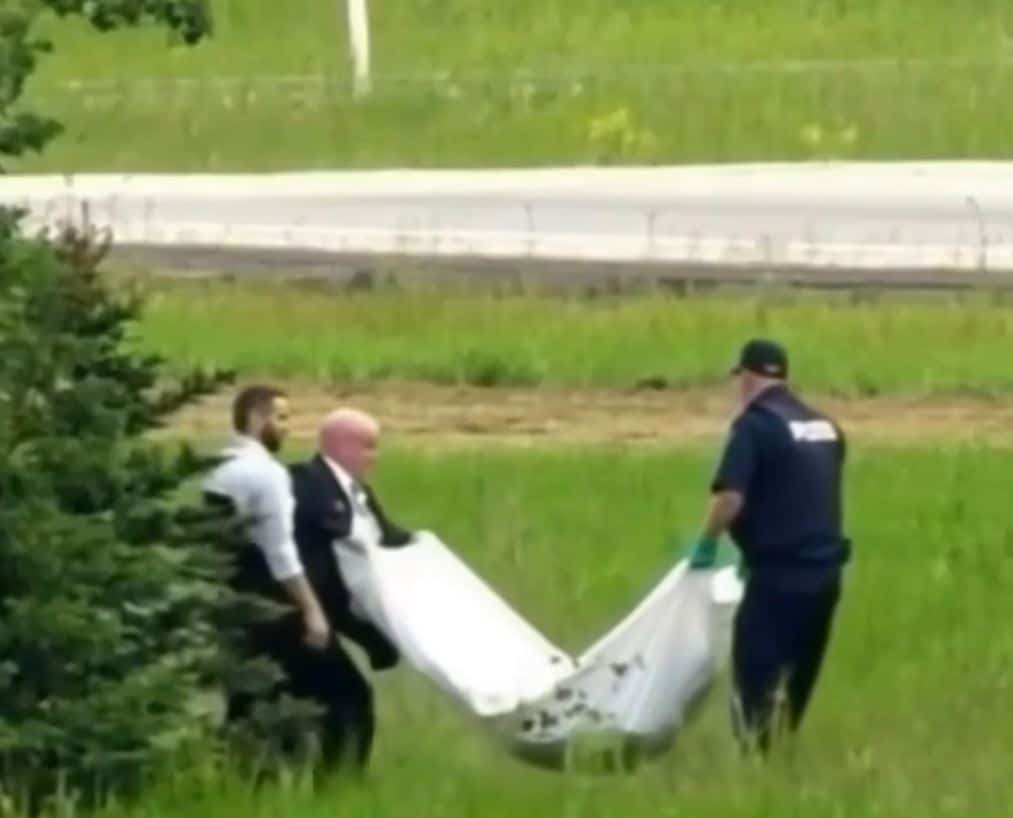The cop made my 72-year-old husband lay face-down on the asphalt in 97-degree heat, his arthritic knees grinding against the burning pavement while four squad cars blocked traffic for what they called a “routine stop.”
Twenty-three minutes Harold spent there, his gray beard pressed to the road, hands cuffed behind his back as passing motorists slowed to gawk at the “dangerous biker” being arrested. I heard one woman tell her kids to “look at the criminal” while my husband – a Bronze Star recipient who did two tours in Vietnam – baked on the concrete like roadkill. All because his motorcycle exhaust was “too loud” – the same pipes that had passed inspection just two weeks prior.
The young cop, Officer Kowalski, kept his boot near Harold’s head the entire time, occasionally nudging him when he tried to shift position to relieve the agony in his knees. “Stay down, old man,” he said loud enough for the gathering crowd to hear. “These old bikers think they own the roads. Time someone taught you different.”
When they finally let him stand, Harold’s face was burned from the asphalt, his hands shaking as he tried to maintain his dignity. That’s when Kowalski leaned in close, away from the dash cams, and whispered something that made my husband of 48 years crumble like I’d never seen before. When I asked him later what the cop had said, Harold just stared at the wall and replied, “He said guys like me don’t belong on the roads anymore.
Said it was time to hang it up before someone got hurt.” That’s when I decided I have to use my powers now. What I did next would either destroy my marriage or save my husband’s soul. But first, I had to decide: was I the submissive wife they expected, or was I the woman who once… I’m Nancy, and I need to tell you what they did to my Harold.
Not because I want pity or because we’re going to sue – Harold would rather die than be “that guy.” I’m telling you because what happened that day broke something in the strongest man I’ve ever known, and I’ll be damned if I let it stand. Harold isn’t some weekend warrior who bought a bike during a midlife crisis. He’s been riding since he was sixteen, when his father came home from Korea and taught him on an old Indian.
He rode through two tours in Vietnam, where his motorcycle skills saved lives running messages through enemy territory. He rode to our wedding, he rode to the hospital when each of our three children was born, and he rode to their funerals when we lost our son in Afghanistan. That bike in our garage isn’t just a machine.
It’s Harold’s connection to every mile he’s traveled, every storm he’s weathered, every brother he’s ridden with who isn’t here anymore. And some punk with a badge and three years on the force tried to take that away with a whisper. The morning it happened started like any other. Harold was heading to the VA hospital for his monthly checkup – something about his liver enzymes from the Agent Orange exposure. He always rides when the weather’s good, says the wind helps clear the fog from all the medications they have him on.
I was in the kitchen when I heard the sirens. Didn’t think much of it – we live near the main road, and emergency vehicles pass by all the time. But when Harold didn’t come home after two hours, I started to worry. His appointments never run that long.
Then our neighbor, Janet, knocked on the door. Her face was pale, and she was clutching her phone. “Nancy, I think you need to see this,” she said, showing me a video her teenage son had taken. There was Harold, surrounded by police cars, lying face-down on the scorching asphalt. His bike was parked at an angle, like he’d been forced to stop suddenly.
Four officers stood around him, hands on their weapons, while one had his knee on Harold’s back. My hands shook as I watched my husband – the man who’d earned a Bronze Star, who’d raised three kids and buried one, who’d never had so much as a speeding ticket in fifty years of riding – being treated like a common criminal. “That’s from forty minutes ago,” Janet said softly. “The kids are all posting about it. They’re calling it police brutality.” I grabbed my keys and drove like a madwoman to where Janet said it happened.
By the time I arrived, Harold was sitting on the curb, uncuffed but still surrounded by officers. His face was red from the heat and exertion, sweat soaking through his vest – the one with his military patches and the “22 a Day” ribbon for veteran suicide awareness. “Ma’am, you need to stay back,” one officer said as I approached. “That’s my husband,” I snapped, pushing past him. “Harold, are you okay?” He looked up at me, and the expression on his face nearly broke me. Embarrassment, pain, and something else – defeat. “I’m fine, Nan,” he said quietly.
Too quietly. Harold’s voice always booms; it’s one of the things I fell in love with. “What happened? Why did they—” “His exhaust exceeds the legal decibel limit,” the young officer interrupted. Badge number 4782, Officer Kowalski. I’ll never forget it. “We received multiple complaints.” “From who?” I demanded. “He drives this route every month. Nobody’s ever complained before.” The officer shrugged. “Anonymous tips. Three of them this morning.” I knew immediately what this was about.
Last week, Harold had testified at a city council meeting against the proposed “motorcycle noise ordinance” – a thinly veiled attempt to discourage bikers from using certain roads through town. He’d been eloquent, passionate, explaining how many veterans find peace in riding, how the motorcycle community supports local businesses and charities. He’d also embarrassed the mayor’s son, who’d been pushing the ordinance after buying a house on Main Street and discovering – shock of shocks – that Main Street has traffic. “So you threw him on the ground for loud pipes?” I asked, my voice rising. “A 72-year-old veteran?” “He failed to immediately comply with instructions,” Officer Kowalski said, like he was reading from a script. “We followed protocol.” “He’s partially deaf from the war!” I shot back. “It’s in his VA file. He probably didn’t hear you clearly.” The officers exchanged glances.
They hadn’t known. Of course they hadn’t known. They saw an old biker and made assumptions. After another hour of “processing” – which seemed to involve a lot of standing around and radio calls – they let Harold go with a warning. No ticket, no arrest, just a “verbal warning” about his exhaust. The same exhaust that had passed state inspection fourteen days earlier. Harold was silent on the drive home, his bike following behind me.
I watched him in the rearview mirror, noticed how he was riding differently – tentatively, like he was afraid of drawing attention. That evening, after his shower, after dinner where he barely touched his food, I found him in the garage.
Just sitting there, staring at his bike. “Want to talk about it?” I asked, pulling up another crate. He was quiet for so long I thought he wouldn’t answer. Then: “Kowalski. The young one. After they let me up, after you’d gone to get the car… he pulled me aside.” “What did he say?” Harold’s hands clenched and unclenched. “Said guys like me don’t belong on the roads anymore. Said it was time to hang it up before someone got hurt. Said next time…” He trailed off. “Next time what?” “Next time they’d find something that would stick. Said there’s always something if they look hard enough.” The threat hung between us, ugly and real. We both knew what he meant. Plant something. “Find” a violation.
Make Harold’s life difficult enough that he’d stop riding. “You can’t let them win,” I said. “This is who you are.” “Maybe he’s right,” Harold said, and those three words hit me like a physical blow. “Maybe I’m too old. Maybe it’s time.” “Harold Eugene Mitchell,” I said, using his full name like I did when our kids were in trouble. “You’ve been riding for fifty-six years. You’ve survived Vietnam, Agent Orange, cancer, and losing Bobby. You’re going to let some punk cop who was probably in diapers during 9/11 tell you who you are?” He almost smiled at that. Almost. Over the next few days, I watched my husband withdraw.
He didn’t go to his weekly ride with the veterans group. He canceled his plans to lead the Memorial Day ride. His bike sat untouched in the garage, gathering dust for the first time since he’d rebuilt it. But I also started making calls. To Janet’s son, who’d taken the video. To other witnesses. To Harold’s riding buddies from the veterans group. And to my nephew, who happens to be a civil rights attorney.
What I learned made me furious. Harold wasn’t the first. In the past six months, seven other older bikers had been pulled over, hassled, humiliated. All after speaking at that city council meeting. All warned about their “dangerous” bikes. Two had already sold their motorcycles. This wasn’t about noise. This was about image. The mayor’s son and his fancy development friends wanted to “clean up” the town’s image, and that meant pushing out anyone who didn’t fit their vision of suburban perfection.
Well, they picked the wrong wife to mess with. I organized quietly at first. Coffee with the other wives, casual conversations at the grocery store. Within a week, I had a network of very angry women whose husbands had been targeted.
By the second week, we had a plan. The night before the next city council meeting, I told Harold I was going to the store. Instead, I drove to the VA hospital, where I’d arranged to meet with Dr. Patricia Reeves, the head of psychiatric services. “Mrs. Mitchell,” she said, greeting me in her office. “I got your message. How can I help?” I explained everything – the stop, the humiliation, Harold’s withdrawal, the threat. Her face grew darker with every word.
“Do you know how many of our patients rely on motorcycling as therapy?” she asked when I finished. “How many veterans find peace on two wheels? What they did to your husband… it’s unconscionable.” “Will you speak at the city council meeting?” I asked. “They need to hear from someone with authority.” She didn’t hesitate. “I’ll do better than that. I’ll bring data. Statistics. And maybe a few other people who’d like to share their thoughts.” The morning of the meeting, Harold noticed I was dressed up. “Going somewhere special?” he asked over breakfast. “City council meeting,” I said casually. “Want to come?” He shook his head. “I’m done fighting that battle, Nan.” “That’s fine,” I said, kissing his cheek. “But I’m not.” What Harold didn’t know was that his entire riding group was planning to attend.
Along with their wives. And Dr. Reeves with a contingent from the VA. And my nephew with a folder full of civil rights violations. And Janet’s son with his video, now edited with commentary from legal experts about police procedure.
The council chamber was packed. Standing room only. A sea of leather vests, military patches, and determined faces. When the mayor’s son stood to present his expanded noise ordinance proposal, he faltered at the sight of the crowd. I spoke first, my voice steady despite my nerves. “My name is Nancy Mitchell.
My husband Harold has served this community for forty years. He’s volunteered at every charity ride, helped raise money for the children’s hospital, and mentored young veterans struggling with PTSD. Two weeks ago, your police force threw him face-down on burning asphalt for the crime of riding while old.” I held up Janet’s son’s video on my phone. “I have footage of the incident.
I have seven other riders willing to testify about similar harassment. And I have a question for this council: Is this the message you want to send to the veterans in our community? That their service means nothing if they choose to ride motorcycles?” One by one, others spoke. Dr. Reeves presented statistics on motorcycle therapy for PTSD.
Veterans shared stories of how riding saved their lives. My nephew calmly outlined the potential lawsuits the city faced if the harassment continued. But the moment that changed everything was when 85-year-old Walter “Tank” Morrison struggled to his feet. Tank had lost both legs below the knee in Korea and rode a specially modified trike. “I was born in this town,” he said, his voice raspy but strong. “Fought for this country.
Came home to build a business and raise a family here. Now you want to tell me I can’t ride because it bothers some newcomers? You want your cops threatening men like Harold Mitchell? Good men who’ve given everything?” He paused, steadying himself on his cane. “I got news for you. We were here first. We’ll be here when you’re gone.
And we’ll ride until the good Lord himself tells us to stop. Not some badge-happy rookie who thinks harassment is good policing.” The chamber erupted in applause. The mayor gaveled for order, but the damage was done. The news crews Janet’s son had quietly alerted were getting it all on camera. The mayor called for a recess. During the break, Officer Kowalski approached me. Out of uniform, looking very young and very uncomfortable. “Mrs. Mitchell,” he said quietly. “I owe you and your husband an apology. I didn’t… I didn’t understand.
My supervisor said these bikers were troublemakers, that we needed to send a message. I never thought about… about who they really were.” I studied him for a moment. “You told my husband he didn’t belong on the roads anymore.” He winced. “I was wrong. Dead wrong. If you’ll let me, I’d like to apologize to him personally.” “That’s up to Harold,” I said. “But you should know something. That man you humiliated? He earned a Bronze Star saving three of his squad members. He’s ridden over 500,000 miles without a single accident.
He’s forgotten more about road safety than you’ll ever learn. Next time you see an old biker, maybe remember that.” When the meeting reconvened, the mayor quietly announced that the noise ordinance proposal was being withdrawn for “further study.” He also announced a new initiative to improve police-community relations, starting with mandatory training on interacting with elderly residents and veterans. It wasn’t everything, but it was a start. I drove home feeling victorious but also apprehensive.
I hadn’t told Harold about any of this, and I wasn’t sure how he’d react. I found him in the garage, but this time he wasn’t just sitting. He was working on his bike, changing the oil. The first maintenance he’d done since the incident. “Heard on the news there was quite a turnout at the city council,” he said without looking up. “Seems someone organized the whole riding community.” “Oh?” I said innocently. “That’s nice.” He chuckled, the first real laugh I’d heard from him in two weeks. “Tank called. Said my wife gave them all hell.
Said you reminded him of a drill sergeant he knew in Korea.” “Tank exaggerates,” I said. Harold stood, wiping his hands on a shop rag. “Dr. Reeves called too. And Walter’s son showed me some video from the meeting.” He pulled me into a hug, oil-stained hands and all. “Thank you.” “I couldn’t let them win,” I said into his chest. “Couldn’t let them make you feel like you don’t belong on those roads. You’ve earned every mile, Harold Mitchell.” He pulled back to look at me. “Kowalski left a message. Wants to apologize.” “What are you going to do?” Harold considered this. “Might invite him for a ride. Show him what responsible motorcycling actually looks like. Kid needs education, not revenge.” That was my Harold.
Even after everything, still thinking about teaching rather than retribution. “So you’re not hanging it up?” I asked. He glanced at his bike, then back at me. “Had a weak moment. Let that young cop get in my head. But you know what? I’ve been riding longer than he’s been alive. These roads know my name. Every mile has a memory.” He walked over to his bike, ran his hand along the tank. “This machine and I have been through too much to let some small-minded people decide when we’re done.
I’ll hang it up when I’m ready, not when someone else decides I should.” The next morning, I woke to the sound of Harold’s bike starting up. I looked out the window to see him in full gear, preparing for his morning ride. As he pulled out of the driveway, he gave the throttle a little extra twist – not enough to be obnoxious, just enough to announce that Harold Mitchell was back on the road where he belonged. Later that week, the whole riding group showed up at our house. They presented Harold with a new patch for his vest: “Too Tough to Stop.” Tank made a speech about brotherhood and standing together.
There wasn’t a dry eye in the garage. Officer Kowalski came by the following Sunday. To his credit, he apologized sincerely, and Harold, being Harold, accepted it with grace. They talked for two hours about motorcycles, about service, about the assumptions people make. When Kowalski left, Harold had agreed to help train new officers on interacting with the motorcycle community. “Turning enemies into allies,” Harold said when I raised an eyebrow. “More productive than holding grudges.” Six months later, Harold led the Memorial Day ride as planned.
Five hundred riders followed him through town, engines rumbling in perfect formation. Officer Kowalski was part of the police escort, having traded his cruiser for a motorcycle after taking the department’s new motorcycle safety course. The mayor’s son moved to a quieter suburb. The noise ordinance never came up again.
And Harold? Harold still rides every chance he gets, his gray beard whipping in the wind, his eyes bright behind his glasses. Sometimes I catch him in the garage, not working on his bike but just sitting with it, like old friends sharing comfortable silence. The bike that almost became a monument to defeat is back to being what it always was – a symbol of freedom, resilience, and the unbreakable spirit of a man who’s earned every mile.
They tried to make him believe he didn’t belong on the roads anymore. They failed. Because men like Harold, riders who’ve given everything and asked for little in return, don’t give up that easily. They might bend under pressure, might have moments of doubt, but with the right support, they spring back stronger than ever.
And if anyone tries to tell them otherwise? Well, they’ll have to go through wives like me first. And trust me, we’re tougher than we look. The road belongs to those who’ve earned their miles through sweat, sacrifice, and stubborn determination.
Harold earned his place on those roads decades ago. No amount of harassment, no whispered threats, no small-minded ordinances will change that. He rides because it’s who he is. And who he is, is exactly who he should be.
 Fact Stream Daily
Fact Stream Daily


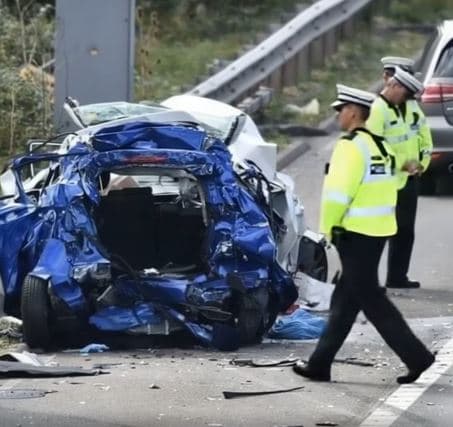
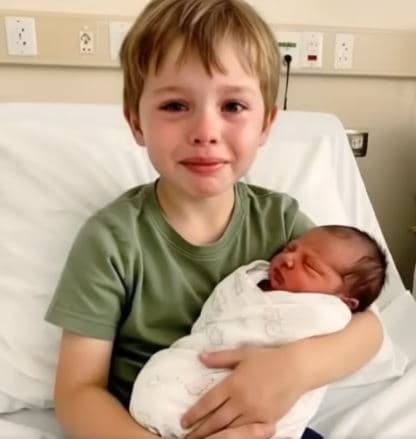

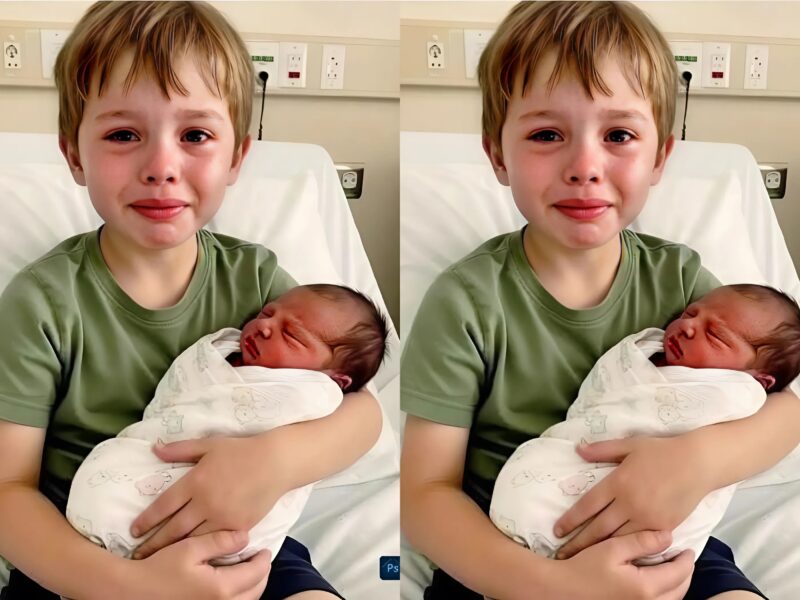
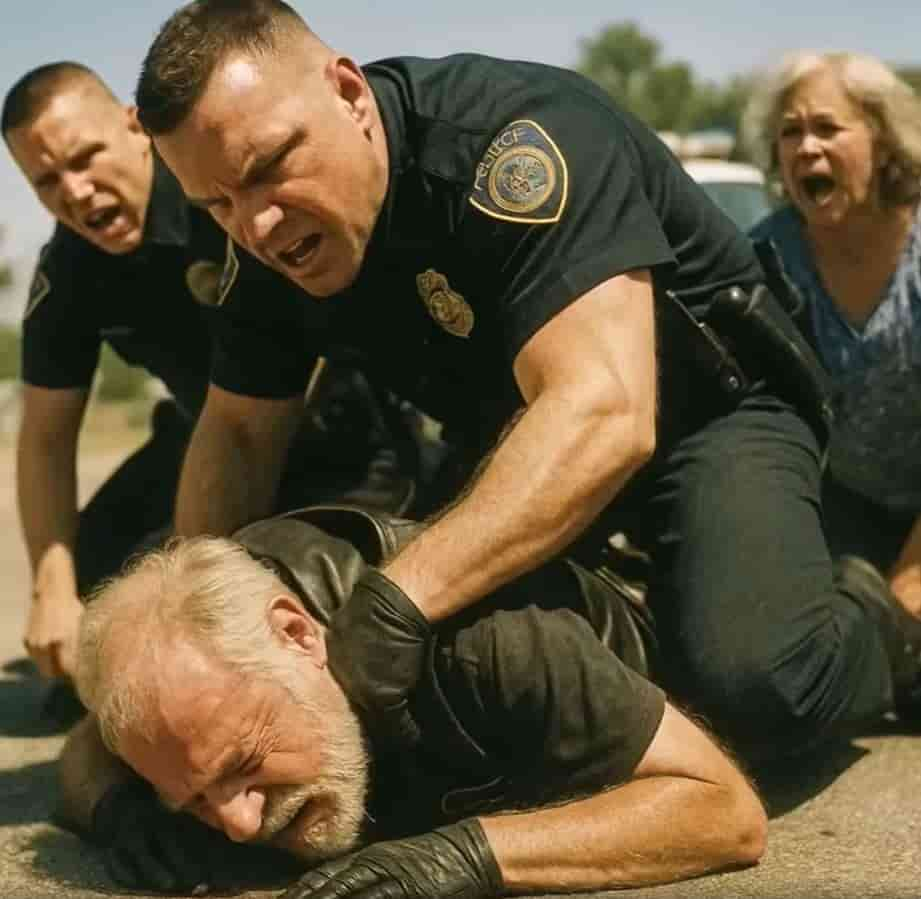









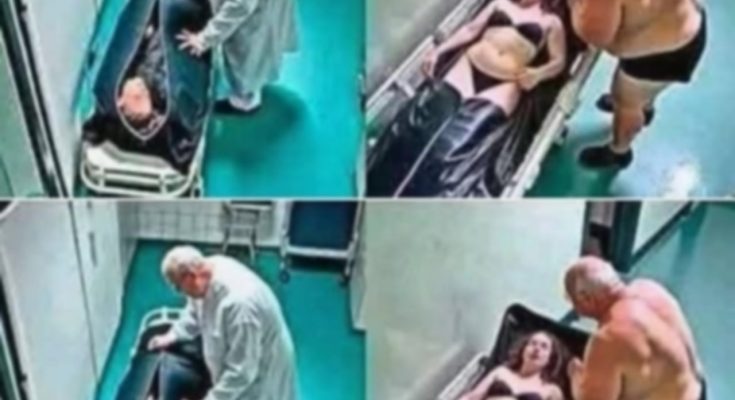
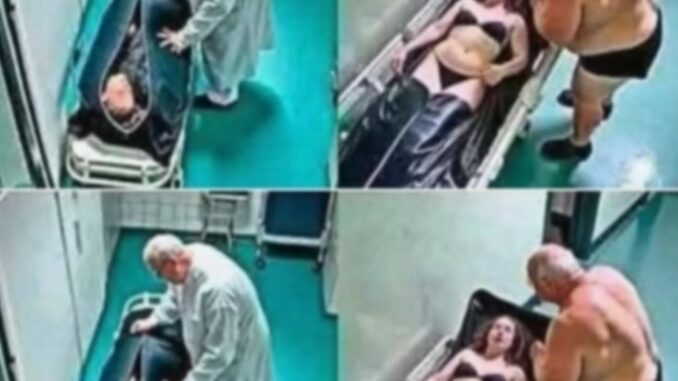 Forensic Doctor Caught in Shocking Scandal: A Case of Betrayed Trust
Forensic Doctor Caught in Shocking Scandal: A Case of Betrayed Trust


